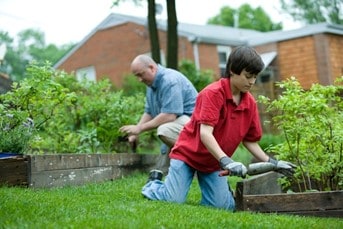Summer break is a cherished time for students, offering a much-needed respite from the rigors of academic life. However, for students enrolled in Pennsylvania cyber schools or online programs, the extended break can sometimes lead to a loss of academic skills, commonly referred to as the “summer slide.” To ensure that students return to their virtual classrooms in the fall prepared and confident, it’s essential to engage in activities that keep their minds sharp, and their skills polished. Here are several strategies to help students maintain their academic skills over the summer.
Create a Structured Routine
One of the advantages of online schooling is the flexibility it offers, but this can also be a drawback during summer when routines can easily fall by the wayside. Establishing a daily schedule that includes time for reading, math practice, and other educational activities can provide structure. Consistency is key; even dedicating just an hour or two each day to academic pursuits can make a significant difference.
Engage in Daily Reading
Reading is one of the most effective ways to maintain and improve academic skills over the summer. Encourage students to read daily, choosing materials that interest them to foster a love of reading. Whether it’s novels, biographies, or scientific articles, reading enhances vocabulary, comprehension, and critical thinking skills. Make the most of your local library by exploring its resources, attending exciting events, and encouraging your children to participate in a summer reading contest for an extra boost of motivation.
Utilize Online Resources and Educational Apps
Students are already familiar with online learning platforms, so why not leverage this familiarity during the summer? There are numerous educational websites and apps designed to make learning fun and interactive. Websites like Duolingo, and Mathway offer lessons and practice exercises in secondary language learning and solving algebraic problems. These tools can help students reinforce what they’ve learned during the school year and explore new topics at their own pace.
Participate in Virtual Summer Programs
These online programs can provide structured learning opportunities in a more relaxed setting. Whether it’s a course on creative writing, a virtual science camp, or a coding workshop, these programs can keep students engaged and intellectually stimulated over the break.
Practice Writing Regularly
Writing is another critical skill that can diminish during the summer if not practiced. Encourage students to keep a journal, write stories, or start a blog. These activities not only improve writing skills but also allow them to express themselves creatively. For older children, writing essays on topics of interest or even drafting college application essays can be beneficial.
Incorporate Educational Games and Activities
Learning doesn’t always have to be formal. Educational games and activities can make skill retention fun. Board games that require strategy, logic puzzles, and even video games with educational content can help maintain critical thinking and problem-solving skills. Additionally, activities like cooking or gardening can be used to teach practical applications of math and science.
Connect Learning with Everyday Activities
Parents and guardians can integrate learning into daily activities. Cooking can become a lesson in fractions and measurements, while grocery shopping can involve budgeting and addition. Watching educational documentaries or visiting museums can also provide valuable learning experiences. These real-world applications help students see the relevance of their academic skills in everyday life.
Set Goals and Monitor Progress
Setting specific academic goals for the summer can give students a sense of purpose and achievement. Whether it’s mastering a new math concept, reading a certain number of books, or completing an online course, having clear objectives can keep students motivated. Regularly reviewing progress towards these goals can also provide a sense of accomplishment and encourage continued effort.
Encourage Physical Activity
Physical activity is crucial for overall well-being and can also benefit academic performance. Encourage students to stay active through sports, outdoor play, or even try a kid-friendly fitness class. Physical exercise has been shown to improve concentration, memory, and mood, all of which are important for academic success, and overall wellbeing.
Foster a Positive Attitude Towards Learning
Finally, fostering a positive attitude towards learning is essential. Encourage curiosity and a love of learning for its own sake, rather than as a chore to be endured. Celebrating achievements, no matter how small, and providing encouragement and support can help students stay engaged and motivated. Remind your children that engaging in these summer activities can keep their skills sharp while still allowing them to enjoy all the fun and relaxation that summer offers.
In conclusion, maintaining academic skills over the summer is particularly important for students. By establishing routines, engaging in daily reading, and writing, utilizing online resources, and integrating learning into everyday activities, students can keep their minds active and ready for the new school year. With these strategies, summer can be a time of growth and enrichment, setting the stage for continued academic success.



